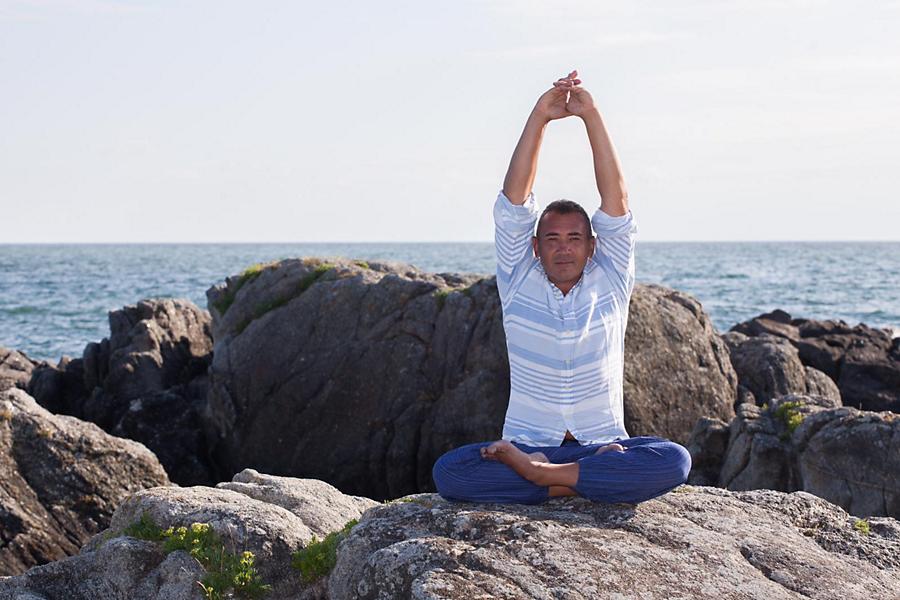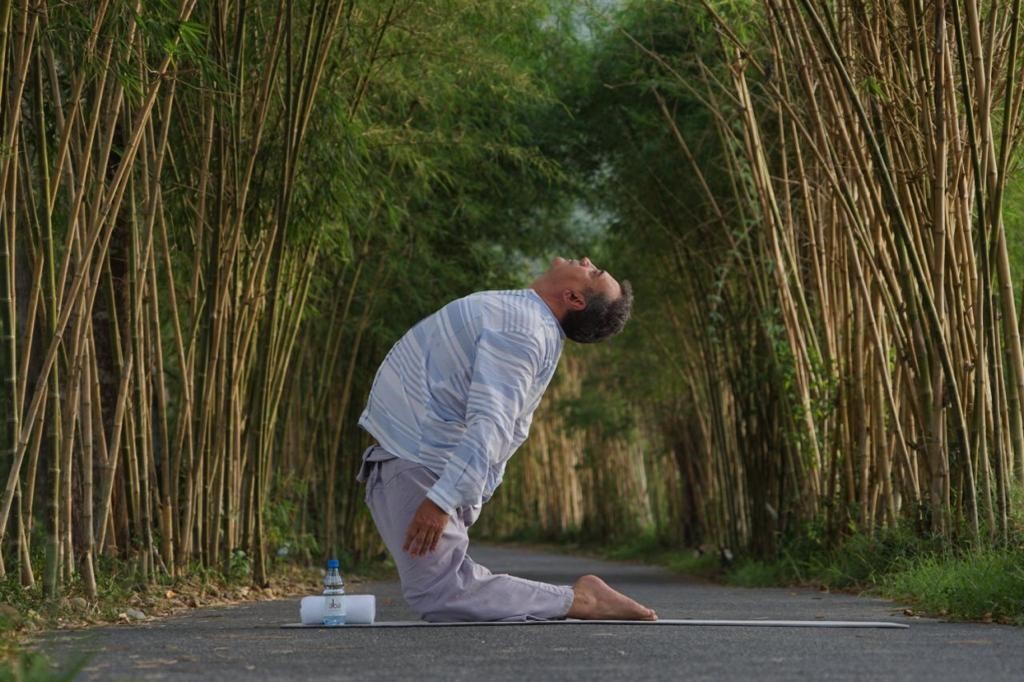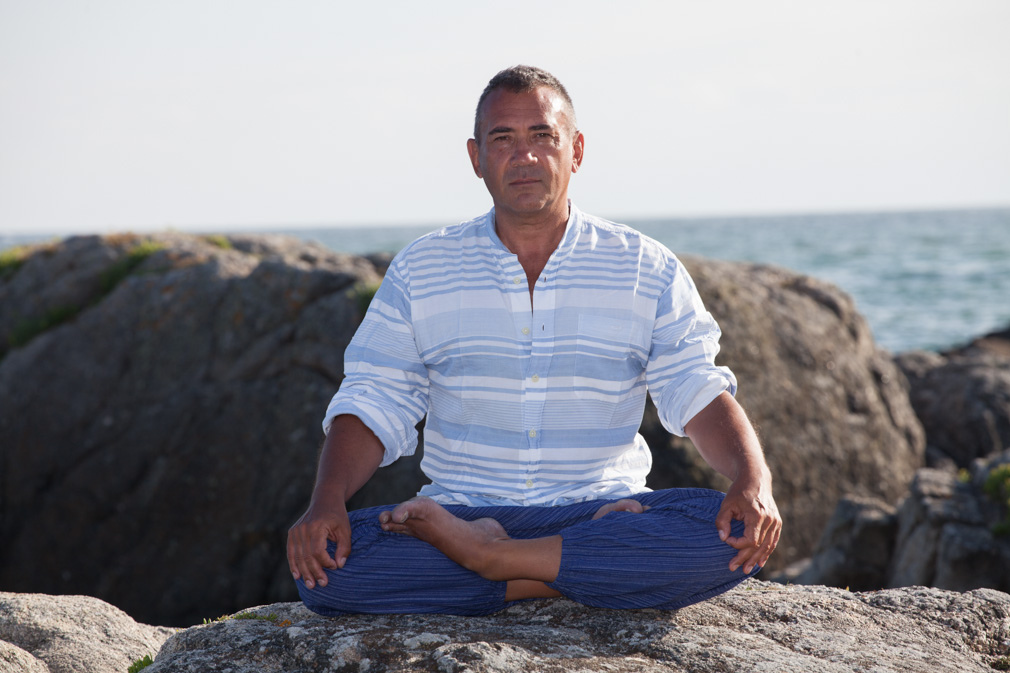Ancient yogis believed we only have so many breaths in our lifetime, that makes you think, doesn’t it? Breathing is such an integral part of our being, that we often forget about it, but without it, there is no life. Dominique Lonchant, pranayama breathing master and a visiting wellness consultant at Mandarin Oriental Hotel Group, teaches proper breathing techniques to help better manage stress and works with sleep disorders, migraines, asthma or overwork. We visited The Spa at Mandarin Oriental, Macau, for a breathing and healing treatment with Dominique and it opened our eyes to the art of breathing.
You’ve said that many of our problems are due to a quasi-permanent lack of oxygen. Why is that?
Actually yes and no, there is something even more important than the oxygen and that is because the ribcage is too tight. A tight ribcage creates difficulties for the brain, because each time the brain wants to take care of our system and the ribcage is not responding, then we’ve got a problem. And then the brain will start being restrained and create disease, one of them could be sleep apnea, which is a serious problem. There are also cardiovascular diseases, stress, allergies and more stemming from not being able to breathe properly. It’s really not just about clean air but also about having a good night, meaning having an “open” ribcage and breathing deep and slow. If the ribcage cannot support this, that becomes a problem.
A breath is the first act we do when we are born. Why do we need to learn how to breathe when we already do it all the time?
Long time ago, even before yoga appeared, some sages began to see that the mankind started to degenerate, so they went back to nature. They observed the animals, trees and this is how this teaching originated–from nature. There is one thing very interesting which is our abnormal position, the fact that human beings are on two feet. According to nature and gravity, this is very bad for our system and organs. We only have one good position, where we are on all fours. There is less gravity and everything is normal. A baby starts breathing nicely but as soon as he gets on two feet, some problems may start to crop up. Thus, it’s not about learning how to breathe but more about opening the chest, which is in a way going back to our primary nature.
Where did you learn how to breathe and how has it changed your life?
It happened a long time ago, as I am already teaching for 40 years. In 1978–1979 I spent two years in an ashram in South India. I was not a very good student and I needed to do something with my life so I thought why not teach yoga and so, I got my diploma after six months. I stayed there longer, because to be a good teacher you really need to study and practice every day directly with the master. My master was a doctor and all the things we were learning were based on medicine so everything had a therapeutic side.
When I came back to France, I started giving my classes and something unexpected happened–I grew bored. I noticed some of my students were having breathing issues so I started constructing my method, which has continuously evolved. I don’t even consider myself as a yoga teacher anymore but more as “ribcage refurbisher”.

You are a master of pranayama yoga, also known as “art of breathing” and even wrote a book about it–what is your unique method?
The method is to refurbish your ribcage. We have three levels–abdominals, the level of the floating ribs; mid chest, the level of the heart and upper level. So we work on positioning all three, one by one, then combine them all together and that’s it.
What is the proper way to breathe?
Most people think that it is healthy to breathe out through the mouth, but according to nature, we are not meant to breathe out of the mouth because we have a filter in the nose. The mouth should be used when we are out of breath, for example when we run, exercise or doing other sports. Look at dogs, they never breathe through the mouth unless they’re thirsty or out of breath.
How does breathing affects our emotional health?
Think of the moment when you are caught by surprise or scared. You unintentionally inhale quickly through the mouth. Thus, if you don’t breathe properly you’ll feel emotionally stressed. That’s why one of the tips I share with my students, especially those who are performers or actors–swallow first. If you can’t swallow, that means you feel oppressed and stressed. So you need to take a break, do some deep breathing and then, come back.
Pollution poisoning these days is a real threat. What is happening in the world?
It’s important to know that once you can control your breath and have your ribcage open, it is a very good weapon against pollution. Your brain is capable of detecting pollution in the air and can make your breathing lighter to protect you, without you even knowing it. Of course, if you spend the whole day surrounded by pollution, you will start feeling tired and your brain will send you signals to to go home and rest.
This is one thing I am very passionate about and I think the knowledge of the ribcage should be shared in schools so people learn how to protect themselves.
What can we do to improve our breathing and access more oxygen in environments with high levels of pollution?
The most important thing is when you sleep, to have deep and slow breathing. Of course we have to be careful during the day, but night time is when the brain is working very hard to regenerate everything. So start at home and make sure the environment in your house and in your bedroom has pure air, so having air purifier is a good idea.

What are the best breathing practices one can implement on a daily basis?
I ask my students to make 30 conscious deep breaths every day. You can do 10, then other 10 and another 10, because sometimes it takes time. The more you trust your subconscious, the more you start to expand your chest. Your brain will become your best friend and you will breathe according to the situation you are in. The thing is, if you focus on your breath, you can’t concentrate on other things so you need to make sure you breathe well and then let it work on its own.
Ancient yogis believed we only have so many breaths for our life, is that true?
We can’t prove it, but I find it very logical. We have to encourage our system to breathe slower and even during our sleep, when you are healthy, the breath is very slow. If you think of turtles, for example, they have very long and slow breath and they live a very long time.
It makes sense but this hasn’t been proven scientifically, but I find that the deeper you breathe and if you have no breathing problem, you will feel differently, no feel of oppression or rush.
Dominique Lonchant is a visiting wellness consultant at Mandarin Oriental Hotel Group. Exclusive treatments include the art of breathing, pranic healing and tarot card reading.
Learn about Dominique’s next visit to The Spa at Mandarin Oriental, Macau, and book your treatment on their website.
The Spa Mandarin Oriental, Macau, 945 Avenida Dr. Sun Yat Sen, NAPE, Macau, www.mandarinoriental.com


































